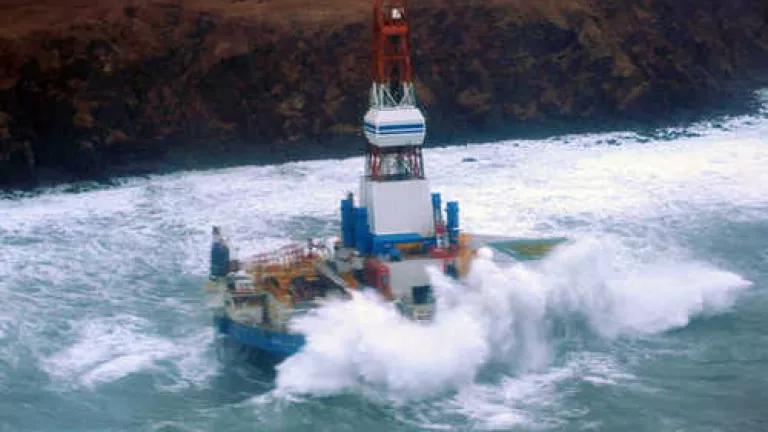
Friday marks the deadline for comment on which ocean waters should be considered for oil and gas leasing. The Obama Administration is creating the next five-year leasing program, but don’t let the name fool you. This is not a short-term matter. Opening oceans to drilling could result in rigs that pump for 50 years and lead to decades of climate change pollution. It would also change the wild nature of these places forever.
Now is the time to move into a more sustainable future, not dig deeper into dirty fuels and oil spills.
America can power our economy without sacrificing special ocean waters or intensifying climate change. Our cars go farther on a tank of gas than ever before, and our businesses and homes are embracing new breakthroughs in efficiency and renewable power. Our nation, meanwhile, is the largest oil and gas producer in the world.
The next five-year program should honor our obligation to future generations. The Obama Administration has an historic opportunity here to cement its legacy of ocean protection and climate action.
It can start by withdrawing the Arctic Ocean from offshore drilling. The Arctic is a crown jewel in America’s natural heritage. The waters of the Beaufort and Chukchi Seas are home to one-fifth of the world’s polar bears, as well as ice seals, endangered bowhead whales, beluga whales, and other wonders of marine life.
Shell's drill rig rain aground after fiasco-ridden attempt to drill in the Arctic in 2012.
But it is also a rugged and forbidding environment—covered in ice much of the year and located 1,000 miles from the nearest Coast Guard base—and there is no proven technology that can contain an oil spill in the Arctic. The Obama Administration should shield this pristine ocean from disaster by withdrawing it from leasing.
It should also exclude Bristol Bay from the program. These rich waters are home to one of the world’s largest wild salmon runs—one that supports a $1.5 billion annual commercial fishery and employs 14,000 people. As President Obama recognized in 2010 when he withdrew it from the current five-year program, Bristol Bay is simply “too special to drill.”
The next five-year program must also honor our nation’s several decades-long commitment to shielding the Atlantic and Pacific regions from offshore drilling—a commitment carried on by Republican and Democratic administrations alike. Both oceans nurture extraordinary marine life—from underwater canyons and mountains teaming with biodiversity in the Atlantic to the migration route of 20,000 gray whales in the Pacific.
Both also create economic growth. Fishermen in the Mid-Atlantic, for instance, earned more than $488 million in 2012 for their catch. Taken together, the US oceans economy is nearly twice the size of the nation’s agricultural sector, and it creates almost four times as many jobs. The majority of these jobs depend on healthy waters. Industrial operations and oil spills put those jobs at risk. After the BP oil disaster, the Gulf of Mexico saw a 39 percent decline in commercial fish landings between 2009 and 2010—a loss of $62 million in dockside sales.
I served on the National Commission on the BP Deepwater Horizon Oil Spill and Offshore Drilling. I saw firsthand how devastating the spill was to marine life and coastal communities. I also learned about the industry’s disregard for safety and the government’s failure to monitor it. Yet in the aftermath of the largest spill in American history, Congress hasn’t passed a single law to rein in an industry known for risky operations and resistance to oversight.
US ocean waters belong to all Americans. They should not be handed over to oil and gas companies that contribute to climate change and threaten the fish, healthy waters, and businesses so many of us depend upon.
It’s time for the next leasing program to reflect smart ocean management and climate stewardship and not include the Arctic Ocean, Bristol Bay, the Atlantic and Pacific waters.
Photo credit: U.S. Coast Guard Petty Officer 3rd Class Jonathan Klingenberg.
